The profoundly inspiring and fully documented saga of Joan of Arc, the young peasant girl whose "voices" moved her to rally the French nation and a reluctant king against British invaders in 1428, has fascinated artistic figures as diverse as William Shakespeare, Mark Twain, Voltaire, George Bernard Shaw, Bertolt Brecht, Carl Dreyer, and Robert Bresson. Was she a divinely inspired saint? A schizophrenic? A demonically possessed heretic, as her persecutors and captors tried to prove?
Every era must retell and reimagine the Maid of Orleans's extraordinary story in its own way, and in Joan of Arc: A Life Transfigured, the superb novelist and memoirist Kathryn Harrison gives us a Joan for our time—a shining exemplar of unshakable faith, extraordinary courage, and self-confidence during a brutally rigged ecclesiastical inquisition and in the face of her death by burning. Deftly weaving historical fact, myth, folklore, artistic representations, and centuries of scholarly and critical interpretation into a compelling narrative, she restores Joan of Arc to her rightful position as one of the greatest heroines in all of human history.
Every era must retell and reimagine the Maid of Orleans's extraordinary story in its own way, and in Joan of Arc: A Life Transfigured, the superb novelist and memoirist Kathryn Harrison gives us a Joan for our time—a shining exemplar of unshakable faith, extraordinary courage, and self-confidence during a brutally rigged ecclesiastical inquisition and in the face of her death by burning. Deftly weaving historical fact, myth, folklore, artistic representations, and centuries of scholarly and critical interpretation into a compelling narrative, she restores Joan of Arc to her rightful position as one of the greatest heroines in all of human history.
A
riveting work of historical detection revealing that the origins of one
of the world’s most iconic superheroes hides within it a fascinating
family story—and a crucial history of twentieth-century feminism
Wonder Woman, created in 1941, is the most popular female superhero of all time. Aside from Superman and Batman, no superhero has lasted as long or commanded so vast and wildly passionate a following. Like every other superhero, Wonder Woman has a secret identity. Unlike every other superhero, she has also has a secret history.
Harvard historian and New Yorker staff writer Jill Lepore has uncovered an astonishing trove of documents, including the never-before-seen private papers of William Moulton Marston, Wonder Woman’s creator. Beginning in his undergraduate years at Harvard, Marston was influenced by early suffragists and feminists, starting with Emmeline Pankhurst, who was banned from speaking on campus in 1911, when Marston was a freshman. In the 1920s, Marston and his wife, Sadie Elizabeth Holloway, brought into their home Olive Byrne, the niece of Margaret Sanger, one of the most influential feminists of the twentieth century. The Marston family story is a tale of drama, intrigue, and irony. In the 1930s, Marston and Byrne wrote a regular column for Family Circle celebrating conventional family life, even as they themselves pursued lives of extraordinary nonconformity. Marston, internationally known as an expert on truth—he invented the lie detector test—lived a life of secrets, only to spill them on the pages of Wonder Woman.
The Secret History of Wonder Woman is a tour de force of intellectual and cultural history. Wonder Woman, Lepore argues, is the missing link in the history of the struggle for women’s rights—a chain of events that begins with the women’s suffrage campaigns of the early 1900s and ends with the troubled place of feminism a century later.
A stunning departure, a surprising and compelling return…From Anne Rice, perennial best seller, single-handed reinventor of the vampire cosmology-a new, exhilarating novel, a deepening of her vampire mythology, and a chillingly hypnotic mystery-thriller.
"What can we do but reach for the embrace that must now contain both heaven and hell: our doom again and again and again…"~from The Vampire Lestat
Rice once again summons up the irresistible spirit-world of the oldest and most powerful forces of the night, invisible beings unleashed on an unsuspecting world able to take blood from humans, in a long-awaited return to the extraordinary world of the Vampire Chronicles and the uniquely seductive Queen of the Damned ("mesmerizing" -SF Chronicle), a long-awaited novel that picks up where The Vampire Lestat ("brilliant…its undead characters are utterly alive" -New York Times) left off more than a quarter of a century ago to create an extraordinary new world of spirits and forces-the characters, legend, and lore of all the Vampire Chronicles.
The novel opens with the vampire world in crisis…vampires have been proliferating out of control; burnings have commenced all over the world, huge massacres similar to those carried out by Akasha in The Queen of the Damned…Old vampires, roused from slumber in the earth are doing the bidding of a Voice commanding that they indiscriminately burn vampire-mavericks in cities from Paris and Mumbai to Hong Kong, Kyoto, and San Francisco.
As the novel moves from present-day New York and the West Coast to ancient Egypt, fourth century Carthage, 14th-century Rome, the Venice of the Renaissance, the worlds and beings of all the Vampire Chronicles-Louis de Pointe du Lac; the eternally young Armand, whose face is that of a Boticelli angel; Mekare and Maharet, Pandora and Flavius; David Talbot, vampire and ultimate fixer from the secret Talamasca; and Marius, the true Child of the Millennia; along with all the other new seductive, supernatural creatures-come together in this large, luxuriant, fiercely ambitious novel to ultimately rise up and seek out who-or what-the Voice is, and to discover the secret of what it desires and why…
And, at the book's center, the seemingly absent, curiously missing hero-wanderer, the dazzling, dangerous rebel-outlaw-the great hope of the Undead, the dazzling Prince Lestat…
"What can we do but reach for the embrace that must now contain both heaven and hell: our doom again and again and again…"~from The Vampire Lestat
Rice once again summons up the irresistible spirit-world of the oldest and most powerful forces of the night, invisible beings unleashed on an unsuspecting world able to take blood from humans, in a long-awaited return to the extraordinary world of the Vampire Chronicles and the uniquely seductive Queen of the Damned ("mesmerizing" -SF Chronicle), a long-awaited novel that picks up where The Vampire Lestat ("brilliant…its undead characters are utterly alive" -New York Times) left off more than a quarter of a century ago to create an extraordinary new world of spirits and forces-the characters, legend, and lore of all the Vampire Chronicles.
The novel opens with the vampire world in crisis…vampires have been proliferating out of control; burnings have commenced all over the world, huge massacres similar to those carried out by Akasha in The Queen of the Damned…Old vampires, roused from slumber in the earth are doing the bidding of a Voice commanding that they indiscriminately burn vampire-mavericks in cities from Paris and Mumbai to Hong Kong, Kyoto, and San Francisco.
As the novel moves from present-day New York and the West Coast to ancient Egypt, fourth century Carthage, 14th-century Rome, the Venice of the Renaissance, the worlds and beings of all the Vampire Chronicles-Louis de Pointe du Lac; the eternally young Armand, whose face is that of a Boticelli angel; Mekare and Maharet, Pandora and Flavius; David Talbot, vampire and ultimate fixer from the secret Talamasca; and Marius, the true Child of the Millennia; along with all the other new seductive, supernatural creatures-come together in this large, luxuriant, fiercely ambitious novel to ultimately rise up and seek out who-or what-the Voice is, and to discover the secret of what it desires and why…
And, at the book's center, the seemingly absent, curiously missing hero-wanderer, the dazzling, dangerous rebel-outlaw-the great hope of the Undead, the dazzling Prince Lestat…
Here is the ultimate book on the worldwide movement of hackers, pranksters, and activists that operates under the non-name Anonymous, by the writer the Huffington Post says “knows all of Anonymous’ deepest, darkest secrets.”
Half a dozen years ago, anthropologist Gabriella Coleman set out to study the rise of this global phenomenon just as some of its members were turning to political protest and dangerous disruption (before Anonymous shot to fame as a key player in the battles over WikiLeaks, the Arab Spring, and Occupy Wall Street). She ended up becoming so closely connected to Anonymous that the tricky story of her inside–outside status as Anon confidante, interpreter, and erstwhile mouthpiece forms one of the themes of this witty and entirely engrossing book.
Half a dozen years ago, anthropologist Gabriella Coleman set out to study the rise of this global phenomenon just as some of its members were turning to political protest and dangerous disruption (before Anonymous shot to fame as a key player in the battles over WikiLeaks, the Arab Spring, and Occupy Wall Street). She ended up becoming so closely connected to Anonymous that the tricky story of her inside–outside status as Anon confidante, interpreter, and erstwhile mouthpiece forms one of the themes of this witty and entirely engrossing book.
The narrative brims with details unearthed from within a notoriously mysterious subculture, whose semi-legendary tricksters—such as Topiary, tflow, Anachaos, and Sabu—emerge as complex, diverse, politically and culturally sophisticated people. Propelled by years of chats and encounters with a multitude of hackers, including imprisoned activist Jeremy Hammond and the double agent who helped put him away, Hector Monsegur, Hacker, Hoaxer, Whistleblower, Spy is filled with insights into the meaning of digital activism and little understood facets of culture in the Internet age, including the history of “trolling,” the ethics and metaphysics of hacking, and the origins and manifold meanings of “the lulz.”
From the renowned and best-selling author of A History of God, a sweeping exploration of religion and the history of human violence.
For the first time, religious self-identification is on the decline in American. Some analysts have cited as cause a post-9/11perception: that faith in general is a source of aggression, intolerance, and divisiveness—something bad for society. But how accurate is that view? With deep learning and sympathetic understanding, Karen Armstrong sets out to discover the truth about religion and violence in each of the world’s great traditions, taking us on an astonishing journey from prehistoric times to the present.
While many historians have looked at violence in connection with particular religious manifestations (jihad in Islam or Christianity’s Crusades), Armstrong looks at each faith—not only Christianity and Islam, but also Buddhism, Hinduism, Confucianism, Daoism, and Judaism—in its totality over time. As she describes, each arose in an agrarian society with plenty powerful landowners brutalizing peasants while also warring among themselves over land, then the only real source of wealth. In this world, religion was not the discrete and personal matter it would become for us but rather something that permeated all aspects of society. And so it was that agrarian aggression, and the warrior ethos it begot, became bound up with observances of the sacred.
In each tradition, however, a counterbalance to the warrior code also developed. Around sages, prophets, and mystics there grew up communities protesting the injustice and bloodshed endemic to agrarian society, the violence to which religion had become heir. And so by the time the great confessional faiths came of age, all understood themselves as ultimately devoted to peace, equality, and reconciliation, whatever the acts of violence perpetrated in their name.
Industrialization and modernity have ushered in an epoch of spectacular and unexampled violence, although, as Armstrong explains, relatively little of it can be ascribed directly to religion. Nevertheless, she shows us how and in what measure religions, in their relative maturity, came to absorb modern belligerence—and what hope there might be for peace among believers of different creeds in our time.
At a moment of rising geopolitical chaos, the imperative of mutual understanding between nations and faith communities has never been more urgent, the dangers of action based on misunderstanding never greater. Informed by Armstrong’s sweeping erudition and personal commitment to the promotion of compassion, Fields of Blood makes vividly clear that religion is not the problem.
For the first time, religious self-identification is on the decline in American. Some analysts have cited as cause a post-9/11perception: that faith in general is a source of aggression, intolerance, and divisiveness—something bad for society. But how accurate is that view? With deep learning and sympathetic understanding, Karen Armstrong sets out to discover the truth about religion and violence in each of the world’s great traditions, taking us on an astonishing journey from prehistoric times to the present.
While many historians have looked at violence in connection with particular religious manifestations (jihad in Islam or Christianity’s Crusades), Armstrong looks at each faith—not only Christianity and Islam, but also Buddhism, Hinduism, Confucianism, Daoism, and Judaism—in its totality over time. As she describes, each arose in an agrarian society with plenty powerful landowners brutalizing peasants while also warring among themselves over land, then the only real source of wealth. In this world, religion was not the discrete and personal matter it would become for us but rather something that permeated all aspects of society. And so it was that agrarian aggression, and the warrior ethos it begot, became bound up with observances of the sacred.
In each tradition, however, a counterbalance to the warrior code also developed. Around sages, prophets, and mystics there grew up communities protesting the injustice and bloodshed endemic to agrarian society, the violence to which religion had become heir. And so by the time the great confessional faiths came of age, all understood themselves as ultimately devoted to peace, equality, and reconciliation, whatever the acts of violence perpetrated in their name.
Industrialization and modernity have ushered in an epoch of spectacular and unexampled violence, although, as Armstrong explains, relatively little of it can be ascribed directly to religion. Nevertheless, she shows us how and in what measure religions, in their relative maturity, came to absorb modern belligerence—and what hope there might be for peace among believers of different creeds in our time.
At a moment of rising geopolitical chaos, the imperative of mutual understanding between nations and faith communities has never been more urgent, the dangers of action based on misunderstanding never greater. Informed by Armstrong’s sweeping erudition and personal commitment to the promotion of compassion, Fields of Blood makes vividly clear that religion is not the problem.
An engrossing and revolutionary biography of Isabella of Castile, the controversial Queen of Spain who sponsored Christopher Columbus's journey to the New World, established the Spanish Inquisition, and became one of the most influential female rulers in history
Born at a time when Christianity was dying out and the Ottoman Empire was aggressively expanding, Isabella was inspired in her youth by tales of Joan of Arc, a devout young woman who unified her people and led them to victory against foreign invaders.
Born at a time when Christianity was dying out and the Ottoman Empire was aggressively expanding, Isabella was inspired in her youth by tales of Joan of Arc, a devout young woman who unified her people and led them to victory against foreign invaders.
In 1474, when most women were almost powerless, twenty-three-year-old Isabella defied a hostile brother and a mercurial husband to seize control of Castile and León. Her subsequent feats were legendary. She ended a twenty-four-generation struggle between Muslims and Christians, forcing North African invaders back over the Mediterranean Sea. She laid the foundation for a unified Spain. She sponsored Columbus's trip to the Indies and negotiated Spanish control over much of the New World with the help of Rodrigo Borgia, the infamous Pope Alexander VI. She also annihilated all who stood against her by establishing a bloody religious Inquisition that would darken Spain's reputation for centuries.
Whether saintly or satanic, no female leader has done more to shape our modern world, in which millions of people in two hemispheres speak Spanish and practice Catholicism. Yet history has all but forgotten Isabella's influence, due to hundreds of years of misreporting that often attributed her accomplishments to Ferdinand, the bold and philandering husband she adored. Using new scholarship, Downey's luminous biography tells the story of this brilliant, fervent, forgotten woman, the faith that propelled her through life, and the land of ancient conflicts and intrigue she brought under her command.
A brief yet definitive new biography of one of film's greatest legends: perfect for readers who want to know more about the iconic star but who don't want to commit to a lengthy work.
He was the very first icon of the silver screen and is one of the most recognizable of Hollywood faces, even a hundred years after his first film. But what of the man behind the moustache?
He was the very first icon of the silver screen and is one of the most recognizable of Hollywood faces, even a hundred years after his first film. But what of the man behind the moustache?
Peter Ackroyd's new biography turns the spotlight on Chaplin's life as well as his work, from his humble theatrical beginnings in music halls to winning an honorary Academy Award. Everything is here, from the glamor of his golden age to the murky scandals of the 1940s and eventual exile to Switzerland. There are charming anecdotes along the way: playing the violin in a New York hotel room to mask the sound of Stan Laurel frying pork chops and long Hollywood lunches with Mary Pickford and Douglas Fairbanks Jr.
This masterful brief biography offers fresh revelations about one of the most familiar faces of the last century and brings the Little Tramp vividly to life.
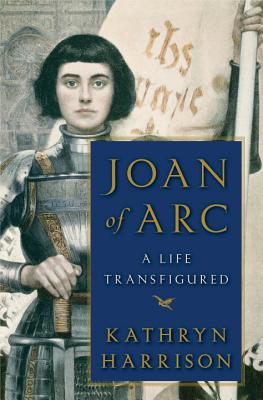

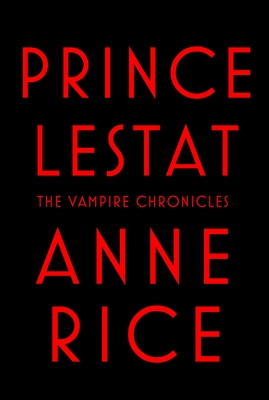
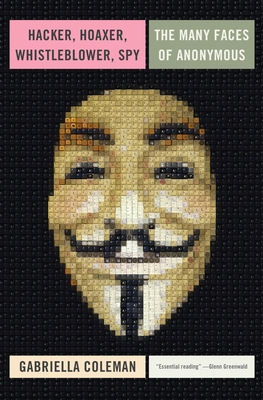
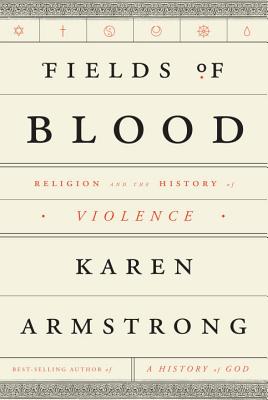
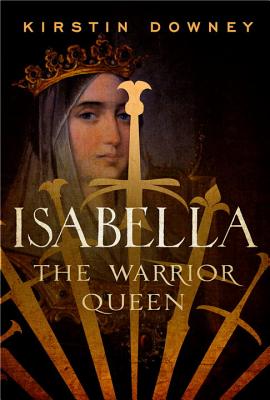
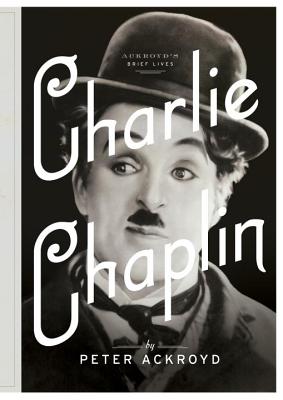
No comments:
Post a Comment